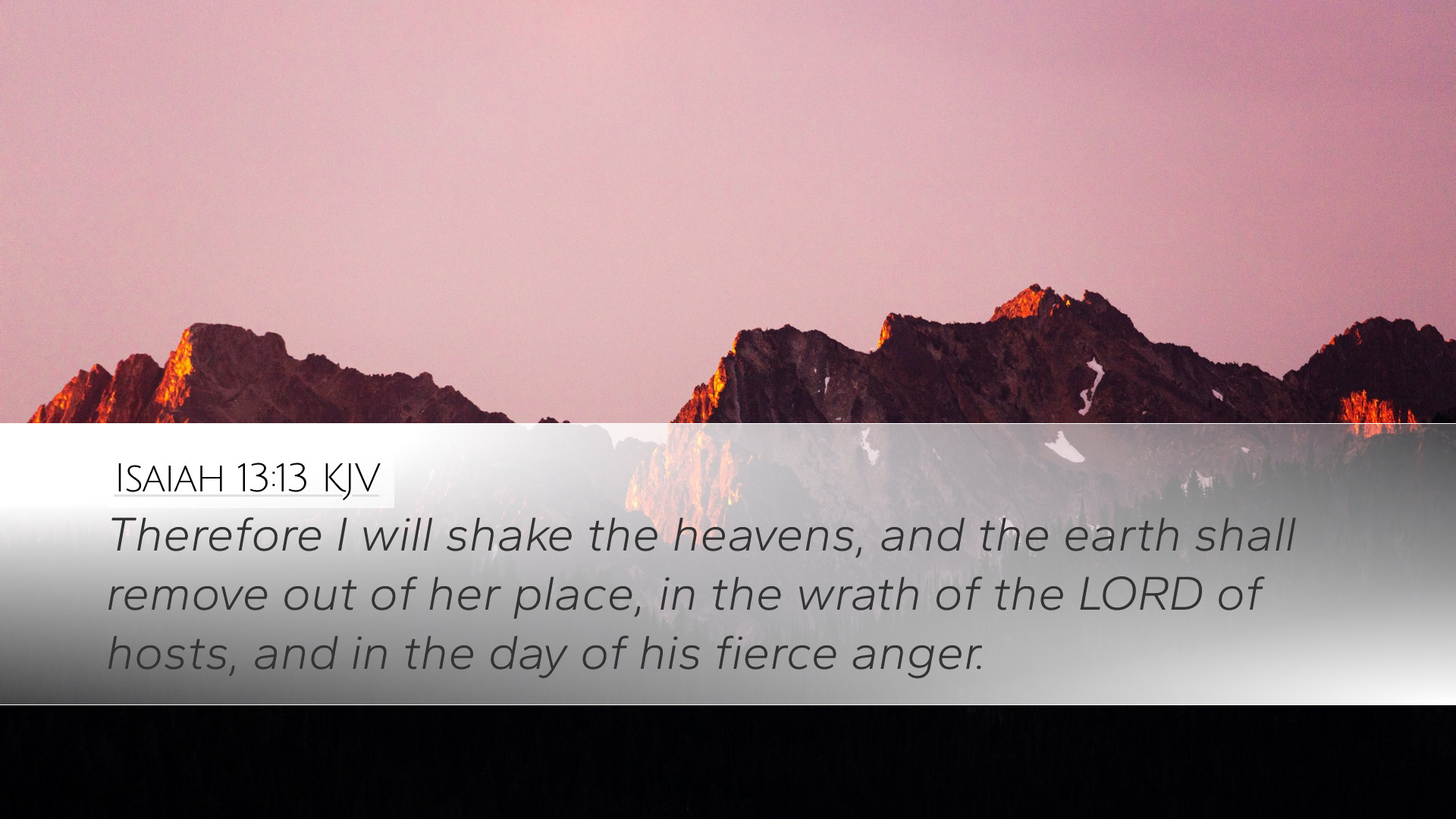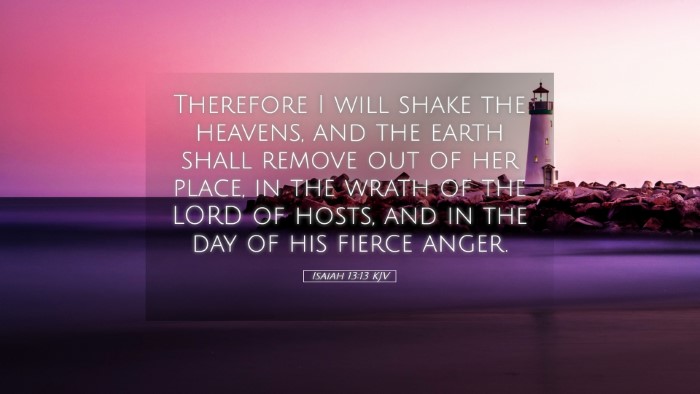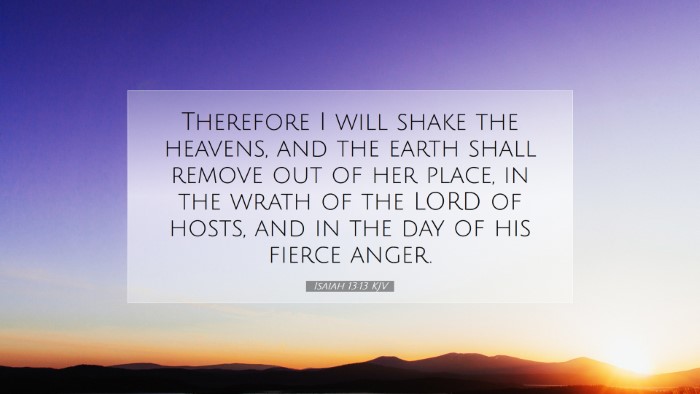Commentary on Isaiah 13:13
Text: "Therefore I will shake the heavens, and the earth shall move out of her place, in the wrath of the LORD of hosts, and in the day of his fierce anger."
Introduction
Isaiah 13:13 serves as a climactic verse emphasizing the profound cosmic implications of God's judgment. The verse proclaims a tumultuous scene where divine anger prompts celestial and terrestrial upheaval. This commentary draws upon the insights from esteemed public domain commentaries by Matthew Henry, Albert Barnes, and Adam Clarke to elucidate the rich theological and exegetical dimensions encapsulated in this verse.
Exegesis of Isaiah 13:13
In this verse, there are two major components that demand attention: the shaking of the heavens and the displacing of the earth. Both aspects signify God's power and the ultimate authority He holds over creation. The imagery of shaking connotes chaos and divine action, reflecting a shift in reality prompted by the LORD’s anger.
The Sovereignty of God
Henry points out that such upheaval illustrates God's sovereign rule over the world. The phrasing "I will shake the heavens" indicates God's authority not only over Earth but also over the celestial bodies. This act serves as a stark reminder that any power or dominion on Earth is subject to the greater power of God. There’s an inherent call for humility before the Almighty.
The Nature of Divine Wrath
The "wrath of the LORD of hosts" signifies a divine displeasure that leads to drastic consequences. Barnes elaborates on this divine wrath, which is not arbitrary but a rightful response to sin and rebellion against God. The concept of divine anger is often hard for modern readers to reconcile, yet it is an essential aspect of God’s holiness.
- God's Holiness: The wrath of God stems from His holiness and righteousness.
- Just Judgment: Divine wrath serves as a precursor to just judgment for moral failings.
- Call to Repentance: God's anger should move humanity towards repentance and turning back to Him.
The Day of the LORD
The phrase "in the day of his fierce anger" signifies a period of divine reckoning. Clarke notes that this isn't merely a singular event but alludes to a series of events throughout history where human sin meets divine judgment. This motif of 'the day of the LORD' is prevalent in prophetic literature, referring to times when God intervenes in human history powerfully.
Implications for Humanity
This verse challenges believers to contemplate their standing before God. What does it mean for the heavens to shake and the earth to be moved? It evokes a sense of urgency for holiness and the need for individuals to examine their foundations.
Theological Reflections
The Cosmic Nature of Judgment
The shaking of the heavens symbolizes that God's jurisdiction extends beyond mere earthly matters. It raises questions about how divine action relates to cosmic order. Henry underscores that this verse conveys the gravity of impending judgment that envelops all creation. In essence, God's wrath is a cosmic event, affecting all layers of existence.
Anticipation of God’s Justice
Both Barnes and Clarke speak to the anticipation this verse generates regarding God’s justice. While it speaks of destruction and fear, it also offers hope for restoration. God’s judgment clears the way for renewal, paving the path for His ultimate plan. Those who faithfully follow Him are reassured of their security amidst turmoil.
Apply It Today
As modern readers grapple with this verse, it brings forth practical implications. In a world where fear and chaos seem prevalent, believers are reminded of God's sovereignty. The assurance that God can shake the heavens and earth compels a sense of hope amidst adversity.
- Recognize God’s Authority: As pastors and theologians, it's pivotal to convey that God holds ultimate authority over both humanity and nature.
- Emphasize Holiness: Encourage congregations to pursue holiness, understanding the seriousness of God's wrath against sin.
- Offer Hope: Use this passage to articulate that God's judgment, while severe, serves a redemptive purpose and leads to renewal.
Conclusion
Isaiah 13:13 encapsulates a powerful and sobering reminder of God’s sovereignty and the seriousness of His judgment. It challenges believers to stand firm in faith, pursue righteousness, and foster a godly fear of the Lord that recognizes His ultimate authority. The insights drawn from the commentaries of Henry, Barnes, and Clarke not only enhance understanding of this verse but also encourage practical applications for a faithful walk with God amid life's uncertainties.


